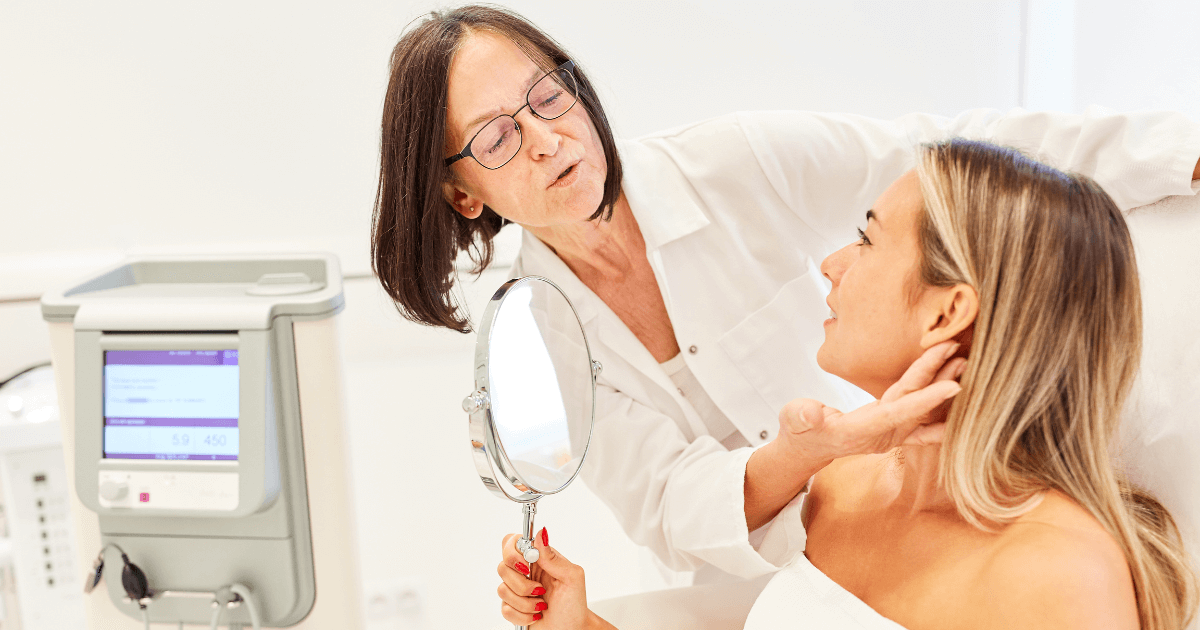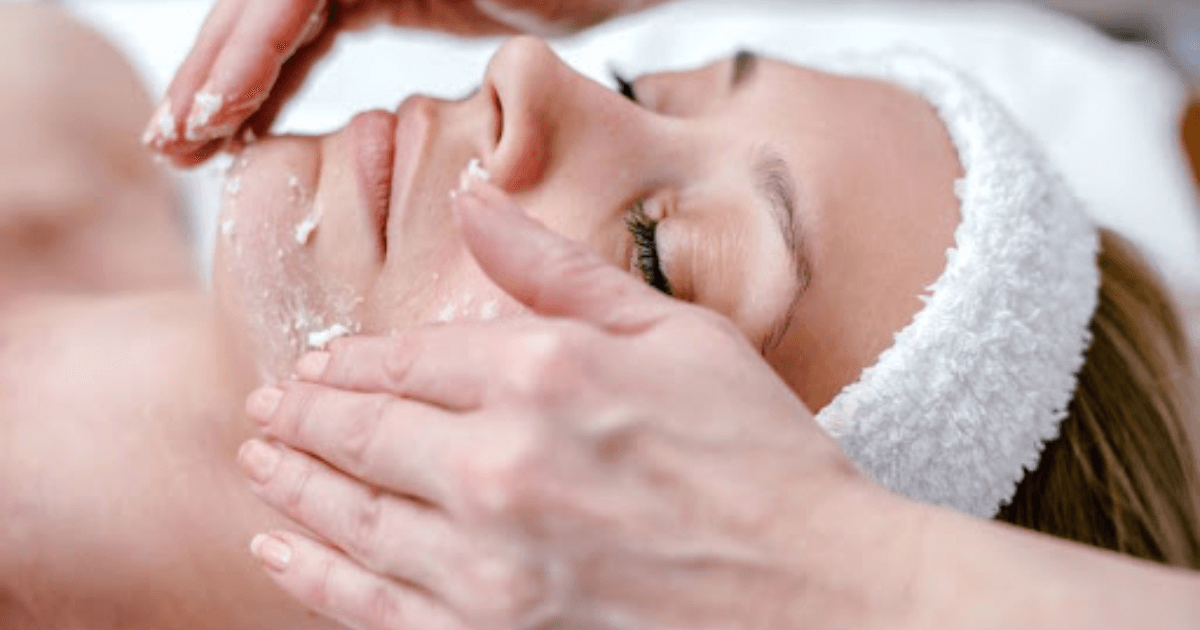10 Must-Ask Questions To Ask Clients Before Their Treatment
A client’s initial consultation is always exciting. These meetings before treatment are the best time to get the most accurate information about a client’s skin/hair and personal hygiene routine. It’s important for spas and salons to go over questions thoroughly with each client to ensure goals and sensitivities are addressed. Don’t know where to start with questions? We’ve laid out some that gather need-to-know information.
10 Questions to Ask Clients

1. Do You Have Any Allergies?
This might not be the first question you lead with, but it is one you shouldn’t neglect. Roughly 50+ million people in the United States have allergies, according to the Centers for Disease Control and Prevention. The last thing you want to do is put your client in harm’s way.
Maybe there are ingredients in certain skin or hair products that can cause them to have allergic reactions. Their response to this question could change the entire treatment plan that you were planning on. Whatever the case, this question needs to be asked to avoid any incidents or liability issues with your clients.
2. Are You Taking Any Medications, Vitamins, or Supplements?
Asking clients about the types of medications or supplements they take can equally be as important as the allergy question. This question may sound a little personal so make sure to state why you are asking specific questions. Certain medications and vitamins can interact with spa products, affecting the effectiveness of the treatment. For example, a medication could cause skin sensitivity or thinning, making it more susceptible to injury during a waxing treatment.
This would also be a great time to ask about any topical medications that are being applied to the skin as well. Overall, knowing this information circles back to the safety of the client and their skin. Estheticians and stylists can make informed decisions about which products to use and which treatments to avoid.
3. What Are Your Skin/Hair Goals?
If you don’t know what your client wants to achieve, then you don’t have enough information to start a treatment. Knowing what skin or hair goals a client has is the first step to building a treatment plan or figuring out what type of products to use in the first place.
This is also a great way to avoid errors in a client’s treatment plan. You wouldn’t want to recommend an-oil based product to a client who is trying to reduce oily skin. If your client isn’t sure about their overall goals, continue to ask them about their current regimen and how well it has been working for them. Knowing these products may help identify further goals.
4. What is Your Current Product Regimen?
As stated above, talking through your client’s skincare regimen may help further decisions for a current treatment. Even if your client doesn’t have an overall “routine” that they follow, ask about the types of products they use or gravitate towards. You should also ask your clients if there are any products that they don’t enjoy and would prefer to stay away from (i.e. foaming vs. non-foaming cleansers).
Additionally, have your client explain why they use it (even if it isn’t an everyday product). This can help identify things that could be contributing to skin/hair concerns and what you feel may need to be swapped out for a new routine.
5. Do You Have Any Skin Sensitivities? Any Products That Cause Sensitivity?
The skin sensitivity question is huge. Why? Sometimes clients may not be aware of any sensitivities they have so it is important to heir on the side of caution. Even if a client can’t pinpoint exactly what they are sensitive to, they can tell you of products that may cause irritation.
With this knowledge, you can begin to backtrack and try to identify certain ingredients that may cause their sensitivity. Another sub-question to consider asking is if your client has experienced any blotchiness, redness itchiness, or burning.
6. Do You Exfoliate? If So, How Often? How is Your Skin After Exfoliation?

Learning about your client’s exfoliation patterns and sensitivities is also an important part of this consultation. Do they exfoliate? Is it chemical based? Is it physical? Many people may not realize that no exfoliation or exfoliating incorrectly can be the cause of skin concerns. This can also be another opportunity to check out sensitivity or recommend products.
7. How Much Sun Exposure Do You Get & How Long is the Duration?
Like the allergy question, this one is a must. Inquiring about their sun exposure will give you a lot of insight into what your clients know about the sun when it comes to skincare. Sun exposure safety can rely on many factors like skin tone, age, and health but overall, general sun exposure every day is already damaging to your skin.
In general, scientists think 5 to 15 minutes is the maximum sun exposure you can have (with no protection) without causing any health problems. So please make sure to ask your clients to be honest and politely inform them about the dangers of sun exposure.
8. Do You Wear Sunscreen Regularly? If Yes, What SPF?
This goes hand-in-hand with the sun exposure question. If your client answers yes, make sure to ask them what SPF number or brand. The American Academy of Dermatology recommends that people select a sunscreen with an SPF rating of 30 or higher.
If your client answers no to wearing sunscreen or doesn’t wear a sunscreen of up to 30 SPF, this is a great time to inform your client of the effects of sun damage. Also, make sure to use this portion to offer your client recommendations for sunscreen.
9. What is Your Diet Like?
This question may not be necessary if you feel you have discussed your client’s health in full. This isn’t a time to judge your clients on what they eat, so make sure to be kind and non-judgemental when asking this question.
Knowing what your client’s diet is like can answer questions about some of their skin concerns. Do they regularly drink caffeine? Do they enjoy red wine? What about spicy foods that could cause inflammation?
10. Are There Any Additional Concerns You Have?
Lastly (if you decide to) end your consultation by asking if there is anything that was missed or if there are any other concerns/questions your client may have. This can be a great time to recap the things that you went over or ask any further follow-up questions. The goal is to make sure your client feels safe, comfortable, and informed before their treatment starts.

Contact Us Today
For more information and to inquire about studio rental contact Delanie Ford - Property Manager